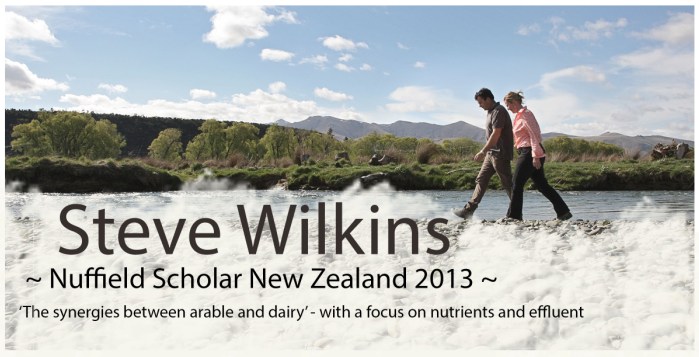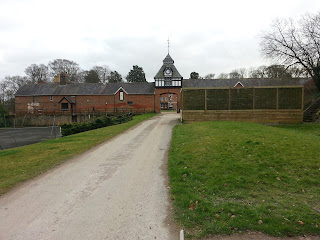Our focus for the third and final case study was based on a mixed arable and livestock farm.
The farm is owned by the Butler family of Manor Farm at Avebury, Wiltshire. The farm is run by Robin and Ben Butler and consists of 1900ac - including some rented land. Predominantly this is an arable business with a flock of around 160 hoggets and 60 breeding cows.
The challenge for the Butler's is to take their farm to the next level and create a pathway for Robin to retire.
Once again the Delegates split into groups of four and set about developing strategies to move the business forward. Manor Farm is already an established and well run unit, so any proposed changes were going to be peripheral and difficult to justify.
The four groups came up with very different ideas, however we were all in agreement that the livestock operations already in place weren't highly profitable. The equine operation on the other hand, currently catering for seven horses, could be expanded and if set up correctly would run with a low labour requirement.
Interestingly, the option of renting the farm out and passing the manager's responsibility onto someone else was a credible alternative. It leaves one wondering if the prices being paid to rent land are over-inflated? We then have to consider how inheritance tax and the like influence the market.
A trip to Temple Farming and Barbury Castle Estate was particularly interesting and gave great insight into how many estates have diversified into the equine industry. Manager Chris Musgrave is a great asset to the farm, very focused and a real character. Between the two estates, there are over twenty miles of racehorse gallops and up-to four-hundred horses train daily.
Speakers for the week included:
- Dr James Jones - CAP. Single Farm Payments amount to around £230 ha and look under threat in its current form. This is set to be debated in March.
- Dr Alistair Leake - Environmental Policy
- Angus Chalmers - Marketing
- Adrian Ivory - Relationships with Supermarkets
- Steve Thomas - Capital Investment
- Caroline Drummond from LEAF - The Environment and Relationships with the Public
- Andrew Ward - Modern Cereal Management
All were wonderful speakers and held a wealth of information in their respective fields.
Friday 8th February marked the final day of the course, so we (the delegates) were joined for the Final Course Dinner by twenty representatives of the Worshipful Company of Farmers. This was a time for presentations and reflection of the past three weeks.
I have found the Advanced Agricultural Business Management Programme a particularly rewarding experience - something I will always remember. I cannot speak highly enough about the course and to anyone considering taking the plunge, I would urge you to do it. Not only for the skills gained from the program but also the contacts and friendships you'll make, as I did.
 |
| 2013 Advanced Agricultural Business Management Delegates |
I now look forward to three days exploring the UK before heading home to Athol for three weeks before attending the 2013 Nuffield Contemporary Scholars Conference in Toronto Canada.


